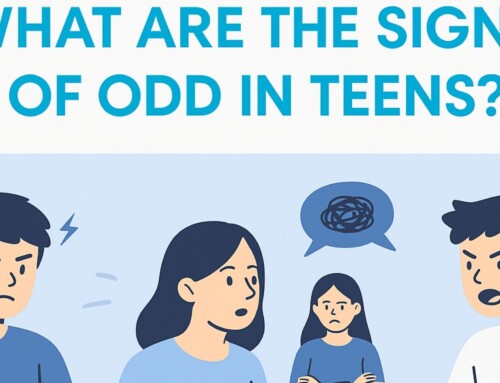Understanding Antisocial Personality Disorder Traits

Antisocial Personality Disorder (ASPD), also referred to as sociopathy, is a complex mental health condition characterized by a lack of empathy and persistent patterns of disregard for others’ rights, societal norms, and ethical standards, often resulting in individuals exhibiting antisocial traits and symptoms of antisocial personality disorder by manipulating others for personal gain while ignoring the negative consequences of their actions. Below is an overview of its traits and evidence-based interventions.
Individuals with antisocial personality disorder, a subtype of cluster B personality disorders, often display a blatant disregard for social norms, engaging in deceitful or manipulative behaviors that can lead to significant interpersonal and legal challenges
Core Antisocial Personality Disorder Traits
Individuals with ASPD exhibit a range of behavioral and emotional characteristics, which often manifest early in life. Key traits include:
- Disregard for Right and Wrong: Consistently ignoring societal rules and laws, often engaging in illegal activities1,3
- Manipulative Behavior: Using charm, wit, or deceit to exploit others for personal gain1.
- Impulsivity: Acting without forethought or planning, often leading to reckless decisions.
- Aggression and Irritability: Frequent displays of hostility, including physical violence7.
- Lack of Remorse: Absence of guilt or empathy for harming others3,5,7.
- Irresponsibility: Failing to meet work, financial, or familial obligations consistently1.
- Substance Abuse: High rates of alcohol or drug misuse are common among those with ASPD7.
These behaviors are often preceded by conduct disorder in childhood, marked by aggression toward people or animals, property destruction, theft, and serious rule violations1,3.
How is antisocial personality disorder diagnosed?
Antisocial personality disorder is diagnosed through comprehensive clinical evaluations, utilizing diagnostic criteria from the Diagnostic and Statistical Manual of Mental Disorders (DSM-5) published by the American Psychiatric Association. Mental health professionals assess a person’s history of antisocial behavior, emotional patterns, and interpersonal relationships, including environmental influences and environmental factors, as detailed by Cleveland Clinic, to determine the type of personality disorder, including narcissistic personality disorder, avoidant personality disorder, histrionic personality disorder, schizoid personality disorder, and schizotypal personality disorder alongside associated mental illnesses such as bipolar disorder. This includes factors such as substance misuse, which may relate to the cause of antisocial personality disorder and childhood experiences such as child abuse. Key indicators include persistent disregard for societal norms and the rights of others, typically evident from early adulthood and potentially manifesting differently in older adults, in contrast to the general population.

Interventions for Antisocial Personality Disorder
While ASPD is challenging to treat due to the inherent lack of insight and motivation in affected individuals, several therapeutic approaches have shown promise:
Psychological Therapies
-
- Focuses on identifying and modifying distorted thought patterns.
- Addresses impulsivity and black-and-white thinking associated with ASPD2,4.
Cognitive Behavioral Therapy (CBT):
-
- Helps manage intense emotions, improve interpersonal skills, and reduce impulsive behaviors.
- Strengthens mindfulness and emotional regulation2.
Dialectical Behavior Therapy (DBT):
-
- Combines elements of CBT with attachment theory to address deep-seated maladaptive patterns2.
Schema Therapy:
Behavioral Interventions
-
- For younger individuals showing early signs of conduct disorder.
- Teaches parents strategies to reinforce positive behavior and reduce aggression2.
Parent Management Training (PMT):
-
- Uses rewards like privileges to encourage adherence to treatment plans or abstinence from substance use2.
Contingency Management (CM):
Pharmacological Support
While no medications specifically target ASPD, certain drugs may help manage co-occurring conditions:
- Antipsychotics (e.g., risperidone) for aggression.
- Mood Stabilizers (e.g., lithium) for impulsivity.
- Antidepressants (e.g., SSRIs) for associated depression or anxiety2,5.
Community-Based Programs
- Programs focusing on vocational training and social skills development can aid in improving day-to-day functioning, particularly for those involved in the criminal justice system3.
Challenges in Treatment
- Many individuals with ASPD do not seek treatment voluntarily due to their lack of insight into their condition.
- Treatment is often initiated through legal systems or external pressures rather than personal motivation5,9.
- Long-term commitment is essential for meaningful change as short-term interventions are typically ineffective.
Conclusion
Antisocial Personality Disorder is a lifelong condition that requires multifaceted interventions combining psychological therapies, behavioral strategies, and community programs. Early detection through childhood conduct disorders and consistent engagement in structured treatment plans can improve outcomes significantly. However, the success of interventions depends largely on the individual’s willingness to participate actively in the therapeutic process.
References
- Healthdirect. (n.d.). Antisocial personality disorder. from https://www.healthdirect.gov.au/antisocial-personality-disorder
- Mayo Clinic. (2023, February 24). Antisocial personality disorder: Symptoms and causes. from https://www.mayoclinic.org/diseases-conditions/antisocial-personality-disorder/symptoms-causes/syc-20353928
- Mayo Clinic. (n.d.). Antisocial personality disorder: Diagnosis and treatment. from https://www.mayoclinic.org/diseases-conditions/antisocial-personality-disorder/diagnosis-treatment/drc-20353933
- MedlinePlus. (n.d.). Antisocial personality disorder. from https://medlineplus.gov/ency/article/000921.htm
- Medical News Today. (n.d.). Antisocial personality disorder: Treatment and more. from https://www.medicalnewstoday.com/articles/antisocial-personality-disorder
- National Health Service (NHS). (n.d.). Antisocial personality disorder. Retrieved from https://www.nhs.uk/mental-health/conditions/antisocial-personality-disorder/
- Psych Central. (n.d.). Antisocial personality disorder (ASPD) treatment. Retrieved from https://psychcentral.com/disorders/treatment-for-antisocial-personality-disorder
- Substance Abuse and Mental Health Services Administration (SAMHSA). (2025, February 13). What is antisocial personality disorder? Retrieved from https://www.samhsa.gov/mental-health/conditions/antisocial-personality-disorder
Filed in: Adults, Orlando, Pedro Michael Valdez IV
Share This Story, Choose Your Platform!
Total Life Counseling Center consists of Licensed Counselors, masters level therapists, Español counselors, Licensed Mental Health Counselors, business coaches, and image enhancement coaches who provide counseling for emotional, mental, physical and spiritual care including marriage, individual, family, substance abuse and more. TLC’s family, trauma and marriage experts have been interviewed on National and Local TV/Radio over 200 times for their expert advice on Fox News, OWN, WETV, ABC’s Medical Minute and more. Our skilled counselors are relational, approachable and specialists providing therapy services in the Central Florida area including: Orlando, Winter Park, MetroWest, Windermere, Dr. Phillips, East Orlando, Lake Mary, and Clermont, Boca Raton Florida, and Dallas, TX.






